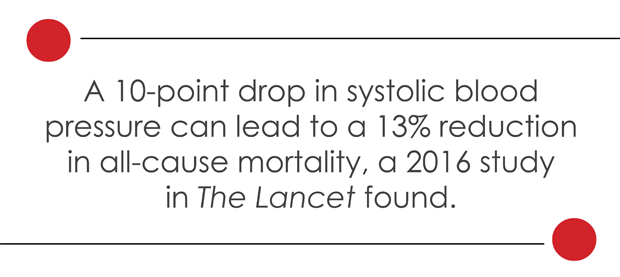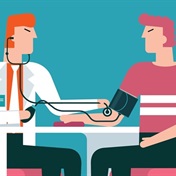People with high blood pressure who get on the information highway can avoid roadblocks in their cardiovascular health, according to new research.
The study found that adding online counselling to medical therapy helped lower high blood pressure and the estimated risk for developing heart disease within the next decade.
"Internet-based supportive lifestyle counselling does indeed work effectively when it's clinically organised and when it complements medical therapy," said the study's lead author, Robert Nolan. He's director of cardiac e-health at the University Health Network's Peter Munk Cardiac Centre in Toronto, and a clinical psychologist at the Toronto General Research Institute.
The study findings were published in the American Heart Association journal Circulation: Cardiovascular Quality and Outcomes.
Searching the internet
Lots of patients with high blood pressure are already searching the internet for ways to improve their health. Looking up health information is the third most popular online activity, with 72% of all internet users seeking medical information, according to the study. However, 91% of people with a chronic health condition say they need guidance in finding the best information and tools online.
Researchers set out to see if online counselling, in tandem with usual care, could lower high blood pressure. Among 264 men and women being treated for high blood pressure, about half were sent regular emails with links to online videos and interactive tools designed to teach and motivate them to improve their cardiovascular health. The control group, meanwhile, received emails with generic information about managing high blood pressure.
Meaningful reduction
After one year, the e-counselling patients' systolic blood pressure – the top number in a blood pressure reading that averaged about 141 in both groups at the start of the study – had dropped by an average of about 10 points compared with a six-point reduction in the control group. Blood pressure is considered high if the top number is 130 or higher.
"We were quite pleased that we reached that kind of mark of meaningful reduction," Nolan said.
A 10-point drop in systolic blood pressure can lead to a 13% reduction in all-cause mortality, a 2016 study in The Lancet found.
Nolan said the key to the new study was using proven methods of behavioural counselling and striking the right balance between simply reminding patients about their health and actively getting them to participate in improving their health.
"We aimed for a programme that's in the middle of the spectrum: It's automated, but it's also interactive," he said. "The interactive tools help people self-assess their changes in blood pressure or lifestyle behaviour, which is very important. It gives them feedback, builds confidence and helps them sustain their changes."
Re-stimulating participants
Dr Lenny López, an associate professor of medicine at the University of California, San Francisco, said the new findings add a deeper perspective to the topic.
"This paper shows you can do a complicated behavioural change model, with lots of components, and have actual biologic results on blood pressure," said López. He's also a senior faculty member at The Disparities Solutions Center at Massachusetts General Hospital in Boston who has researched e-counselling and high blood pressure but was not involved in this latest study.
"One thing that's important is that they were initiating the emails and keeping the interest going. They were re-stimulating the participants," he said.
Replicating the study's strategy – an automated one that doesn't replace but rather complements real-life contact between patients and medical professionals – is what it will take to make e-counselling work in the real world, said López.
"Research tells us that patients want to be reactivated," he said. "They want to talk about their results with a nurse or doctor. E-methods are great, but there has to be person-to-person interaction."
Image credit: iStock




 Publications
Publications
 Partners
Partners
















